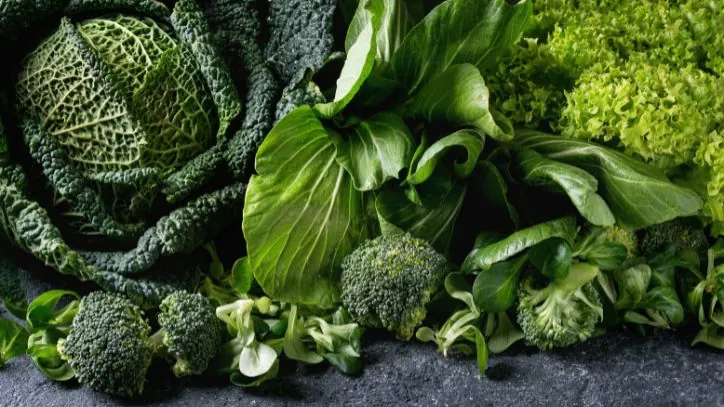Blog
Immune Boosting Foods Cheat Sheet

Food is nutrition, and we all know that a well-balanced diet is essential for maintaining good health. However, fewer people realize that what we eat profoundly impacts our ability to avoid illnesses and recover more quickly when we do fall sick. Research indicates that a balanced diet may be more effective in preventing illness than relying solely on vitamin C supplements. This makes it crucial to focus on the foods we consume for a robust immune system.
In this cheat sheet, we dive deeper into some of the best immune-boosting foods that can help protect your body from infections and diseases. We’ll explore their benefits, how they contribute to immune health, and include additional immune-supportive foods for an even more comprehensive diet.
1. Citrus Fruits
The Immune Champion
Citrus fruits, such as oranges, lemons, limes, and grapefruits, are universally recognized as the traditional immune-boosting foods. Their rich vitamin C content acts as a powerful antioxidant, helping to protect cells against damage caused by free radicals. Vitamin C is known to stimulate the production of white blood cells, which are essential for fighting infections. For more on vitamin C and immunity, check out Healthline.
Adding More Citrus to Your Diet
Incorporate citrus fruits into your daily routine by adding slices to your water, including them in salads, or making smoothies. Consider mixing them into your yogurt or creating a homemade citrus dressing to enhance flavor while boosting your immune health.
2. Yogurt
Probiotics for Gut Health
Yogurt is not only a delicious snack but also packed with beneficial live cultures and probiotics that promote gut health. A significant portion of our immune system—approximately 70-80%—is housed in the gut. Probiotics can enhance the gut microbiome, leading to improved immune response and resistance to pathogens. Choose plain, unsweetened yogurt with live active cultures for the best health benefits. Yogurt can be an excellent source of calcium and protein, and it can be easily incorporated into various meals. You can read more about probiotics and their benefits on WebMD.
Yogurt Recipe Ideas
Try incorporating yogurt into smoothies, using it as a base for salad dressings, or enjoying it with fruit and granola for breakfast. Additionally, consider making a homemade tzatziki sauce with yogurt, cucumber, lemon juice, and fresh herbs.
3. Garlic
Ancient Medicine
Garlic has been revered for centuries for its medicinal properties. Rich in alliin, garlic has antimicrobial and anti-inflammatory properties, making it a natural immune enhancer. Its active compound, allicin, not only fights off illness-causing pathogens but also reduces blood pressure.
Garlic in Your Cooking
Include garlic in your meals regularly, whether roasted, sautéed, or used in marinades and dressings. You can also eat it raw in salads or mix it into sauces for added flavor and health benefits.
4. Sweet Potatoes
Betacarotene Powerhouse
Sweet potatoes are more than just a delicious comfort food—they are also a rich source of beta-carotene, which the body converts into vitamin A. Vitamin A plays a vital role in maintaining healthy skin and mucosal barriers, helping to fend off pathogens effectively. Sweet potatoes are also nutritious in fiber, potassium, and vitamin C, which contribute further to overall health. Learn more about the benefits of sweet potatoes on Healthline.
Cooking Tips
Enjoy sweet potatoes baked, mashed, or as part of a hearty stew or soup. You can also try them roasted with spices or blended into a creamy soup for a comforting meal.
5. Leafy Greens
Nutritional Powerhouses
Leafy greens, like spinach, kale, and Swiss chard, are essential components of a healthful diet. These vegetables are rich in vitamins A, C, and E, as well as folate and other essential nutrients. Due to their high nutrient density, they help the body function optimally, including supporting immune health. Discover more about leafy greens and their benefits on Healthline.
Delicious Ways to Enjoy Leafy Greens
Add leafy greens to smoothies, salads, or omelets for nutrient-packed meals. You can also sauté them with garlic and olive oil or mix them into soups for added flavor and nutrition.

6. Almonds
Vitamin E & Cellular Protection
Almonds are an excellent source of vitamin E, a vital nutrient that protects cell membranes against oxidative stress. Vitamin E plays an essential role in immune function, particularly in aging populations. Read further about the benefits of almonds on Healthline.
Including Almonds in Your Diet
Snack on raw or roasted almonds, add them to oatmeal, or use almond butter as a spread. You can also include them in baked goods or salads for added crunch and nutrition.
7. Mushrooms
Immune Support from Fungi
Mushrooms, particularly varieties like shiitake and maitake, contain beta-glucans, a type of soluble dietary fiber that can enhance immune response. They also provide good amounts of antioxidants, which help reduce inflammation and support overall health. For more information, consider checking out Mushroom Council.
Cooking with Mushrooms
Mushrooms can be incorporated into various dishes, such as stir-fries, risottos, soups, and salads. You can also roast them for a tasty side dish or blend them into sauces for added flavor and nutritional benefit.
8. Ginger
Healing Roots
Ginger is well known for its anti-inflammatory and antioxidant properties. It can help reduce inflammation in the body and may play a role in enhancing the immune response. According to a study published in the Journal of Ethnopharmacology, ginger has compounds that may help boost the immune system.
How to Use Ginger
Incorporate ginger into your meals by adding it to smoothies, tea, or stir-fries. Grate fresh ginger into marinades or dressings for an extra kick and health boost.
9. Turmeric
Nature’s Anti-Inflammatory
Turmeric contains curcumin, a compound known for its powerful anti-inflammatory effects. Research has shown that curcumin can enhance the immune system and may aid in fighting off infections. For more about turmeric and its benefits, visit Healthline.
Using Turmeric in Cooking
Add turmeric to curries, soups, smoothies, or golden milk for a healthy drink. You can also sprinkle it over roasted vegetables or include it in grain dishes for added flavor.
10. Berries
Antioxidant Powerhouses
Berries, such as blueberries, strawberries, and blackberries, are loaded with antioxidants, particularly vitamin C and various phytochemicals. These compounds can help protect the immune system by reducing oxidative stress and inflammation. Explore more about the benefits of berries on Harvard Health.
Enjoying Berries
Berries can be enjoyed fresh, added to smoothies, or included in yogurt and oatmeal. They can also be used to make wholesome jams, sauces, or desserts.
11. Green Tea
A Sip Towards Wellness
Green tea contains a high amount of antioxidants, particularly catechins, which are believed to enhance immune function and provide anti-inflammatory benefits. Research suggests that the compounds in green tea may improve the disease-fighting abilities of immune cells.
How to Incorporate Green Tea
Brew green tea as a warm beverage, or experiment with it in smoothies or cocktails. You can also use it as a base for soups or rice dishes for added flavor.
12. Pomegranates
Nutrient-Rich and Immune-Boosting
Pomegranates are packed with antioxidants and have anti-inflammatory properties, which can help reduce the risk of chronic diseases and support the immune system. Their high vitamin C content and other nutrients contribute to overall health. Learn more about pomegranates and their benefits on Healthline.
Pomegranate Ideas
Enjoy pomegranates fresh, sprinkle the seeds over salads, or blend them into smoothies. You can also use pomegranate juice as a flavor booster in dressings and marinades.
13. Oats
Heart-Healthy Immunity Boost
Oats contain beta-glucans, a type of soluble fiber that not only supports heart health but also enhances immune response. Research indicates that beta-glucans can help activate immune cells, making oats a beneficial addition to the diet.
Easy Ways to Enjoy Oats
Start your day with a warm bowl of oatmeal topped with fruits and nuts, or use oats in smoothies for added texture and nutrition. You can also add oats to homemade baked goods for extra fiber.
14. Pumpkin Seeds
Zinc and Immune Function
Pumpkin seeds (also known as pepitas) are an excellent source of zinc, a mineral that is crucial for maintaining immune function. Zinc helps manage immune responses, supports healing, and has antioxidant properties. Read more about the health benefits of pumpkin seeds on Healthline.
Integrating Pumpkin Seeds into Your Diet
Snack on roasted pumpkin seeds, add them to salads, or sprinkle them over oatmeal or yogurt. You can also include them in homemade granola or trail mix for a nutritious boost.
15. Fish
Omega-3 Fatty Acids for Inflammation Reduction
Fatty fish, such as salmon, mackerel, and sardines, are rich in omega-3 fatty acids, which can help reduce inflammation in the body and support overall immune health. Omega-3s are essential for various bodily functions, including the optimal functioning of immune cells. For additional details, check out Verywell Fit.
Delicious Ways to Prepare Fish
Enjoy fish grilled, baked, or pan-seared. Consider incorporating fish into salads, tacos, or pasta dishes for a nutritious and delicious meal.
Conclusion:
Maintaining a strong immune system requires a balanced diet rich in a variety of nutrients found in different foods. By including a range of immune-boosting foods in your meals—such as citrus fruits, yogurt, garlic, sweet potatoes, and leafy greens—you can enhance your overall health and resilience against illness. It’s essential to emphasize whole, unprocessed foods for optimal nutrition and immune support.
Incorporating these immune-boosting foods into your diet can be a flavorful journey towards better health. Remember that while specific foods can support your immune system, it is also vital to practice other healthy lifestyle habits, such as regular exercise, adequate sleep, and stress management, to strengthen your overall well-being.
Make small changes today by adding these nutrient-rich foods to your meals, and enjoy the benefits of a healthier immune system!
For more insights into health and nutrition, consider checking out our blog!
By Heide Kennedy, Arizona Farm Bureau Communications Intern


















